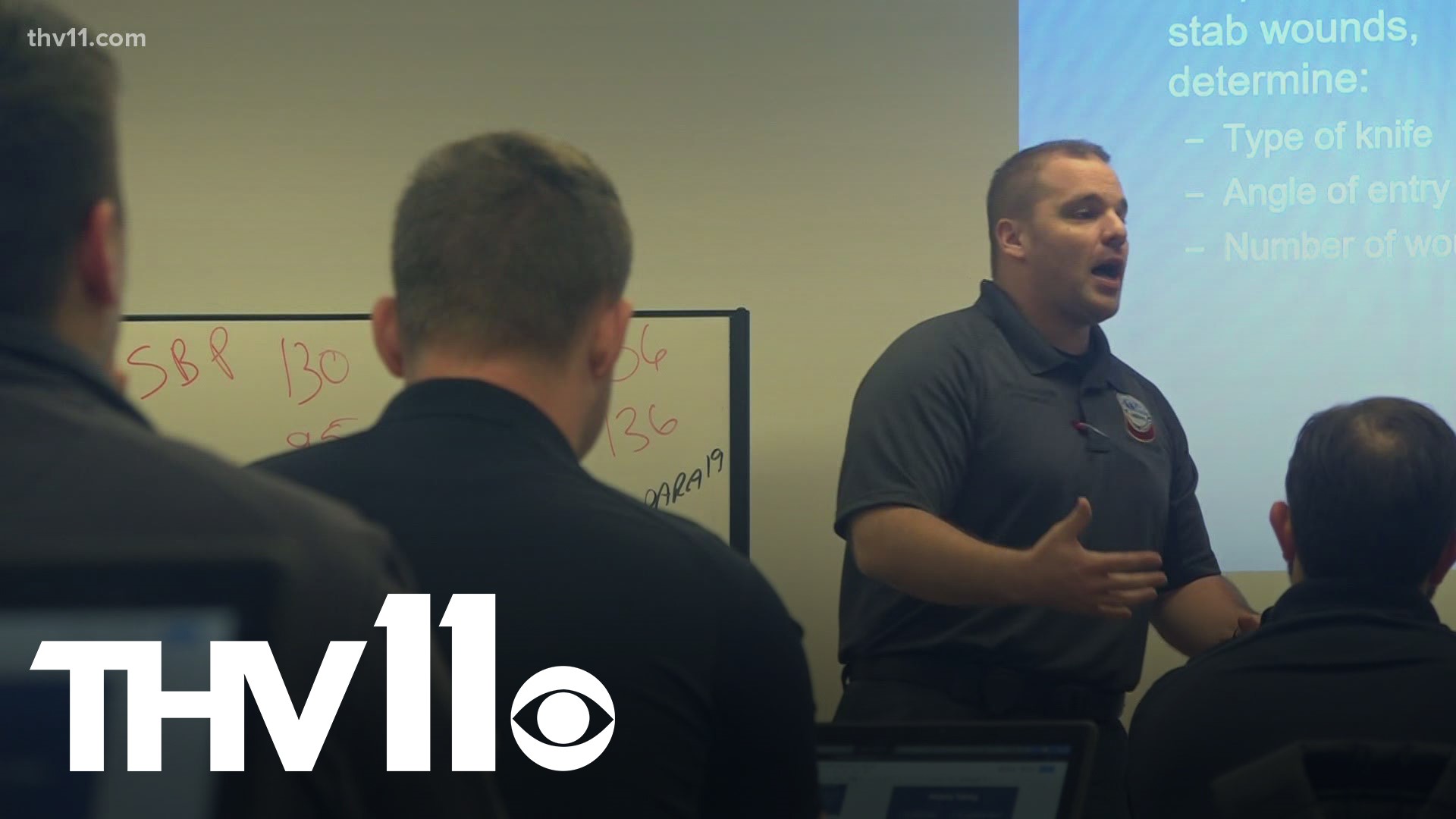LITTLE ROCK, Ark. — The pandemic posed challenges to Little Rock's emergency medical crews. Metropolitan Emergency Medical Services (MEMS) said emergencies didn't stop when COVID-19 started and that the heightened demand led to burn out and even health risks for first responders.
They've created a new program to introduce people into the industry. Emergency Vehicle Operators (EVO) are trained in-house to drive the vehicles to and from emergency situations for transport.
The program started a few months ago in response to the need for more workers.
"Through that process of training the EVO's it was a great opportunity to recruit people into the EMS profession," Ken Kelley, with the Arkansas Ambulance Association, said. "We have had some issues with the work force not only across the state, but across the nation."
Kelley cited pay, long work hours, the stress of the job, and the 2020 pandemic as being the lead contributors to burnout in the industry.
Additionally, there have been numerous retirements with people aging out of the work force as either paramedics or EMT's after more than 20 and 30 years of work.
The increase of emergencies meant that more people were needed to respond to those emergencies.
"Every community depends on their law enforcement, their fire rescue, and emergency medical services as part of the public safety net," Kelley said. "Having us there on the front lines is critical not only in pandemics, but just in everyday life and everyday emergencies."
Greg Thompson is the executive director for MEMS.
He said MEMS covers 2200 square miles for multiple counties including Pulaski, Grant, Faulkner and part of Lonoke.
They've been transporting 220 people per day which is higher than what they budgeted for.
Just this month alone, they're getting close to 250 people per day with 40 vehicles out at any given time.
Thompson said they're offering in-house training for the EVO program, but also for opportunities to become EMT's and medics.
"You can also apply to be an EMT student. We have our own school here and we'll train you to be a licensed EMT," Thompson said. "We also have our own paramedic school where we'll train you and pay you to go to school to be a licensed paramedic."

